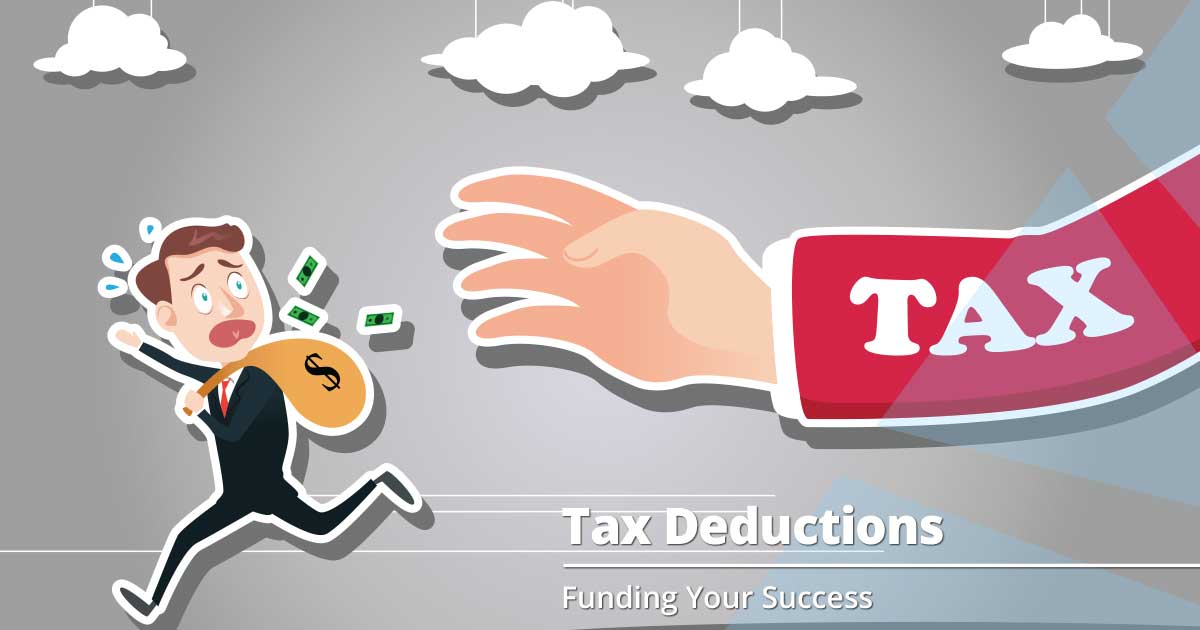7 Common Tax Deductions for Small Businesses
 Looking for more ways to pay less in taxes for your small business? You’ve come to the right place. It’s never too late—or too early—to start considering all the expenses you’re able to write-off as a small business owner. It’s an easy way to bring in more revenue. Let’s dive in to some of the most common tax write-offs you should be considering.
Looking for more ways to pay less in taxes for your small business? You’ve come to the right place. It’s never too late—or too early—to start considering all the expenses you’re able to write-off as a small business owner. It’s an easy way to bring in more revenue. Let’s dive in to some of the most common tax write-offs you should be considering.
First and foremost, we’ll explain what a tax deduction is. According to Investopedia, “A tax deduction is a deduction that lowers a person’s or an organization’s tax liability by lowering their taxable income. Deductions are typically expenses that the taxpayer incurs during the year that can be applied against or subtracted from their gross income to figure out how much tax is owed.” Some key things you might be able to write off this year include…
Home Office Use
We’ve been experiencing unprecedented weirdness over the last year when it comes to our work lives. If you’ve been running your business from the inside of your home for the past year, there’s a good chance this space can be a tax write-off. According to Forbes, an area of your home would need to be used “exclusively and regularly” for business dealings. Check with the IRS to learn if the home office tax deduction applies to you.
Utilities
Electricity, water, gas, telephone, internet—all of these utilities that are necessary for the operation of your small business are considered tax write-offs. Just remember that if you’re working from home, your personal home phone is not considered a write-off.
Marketing
Remember all those times we talked about the importance of marketing your small business? The costs you incurred printing business cards, making signage, sending out flyers, and taking out ads is all considered a deduction. What about the creation and maintenance of your website? Yep, that’s a write-off too.
Loan Interest
Got a small business loan (perhaps from ARF Financial)? The interest you pay on that Flex Pay loan or money drawn from your line of credit is all fair game as a deduction from your income tax.
Equipment and Software
Ever heard of the Section 179 Deduction? Neither had we. According to its website, “Section 179 of the IRS tax code allows businesses to deduct the full purchase price of qualifying equipment and/or software purchased or financed during the tax year. That means that if you buy (or lease) a piece of qualifying equipment, you can deduct the full purchase price from your gross income.” Pretty cool, right?
Benefits for Employees
Everything from retirement funds to health insurance falls under the tax-deductible column, as does the salary you pay your employees and the bonuses they may be offered.
Business Taxes
This might seem a little counter-intuitive, but the taxes your business pays are tax deductible. Think of things like sales tax, state taxes, and real estate taxes.
It’s no secret that ARF Financial has been a leading financial services company for decades. Since 2001, we’ve been helping small business owners like you secure over $810 million in funding. We make sure our clients get the funds they need fast, and we offer fixed weekly payments that won’t increase over time. So from Flex Pay loans to lines of credit, ARF Financial has you covered – just ask our customers!

